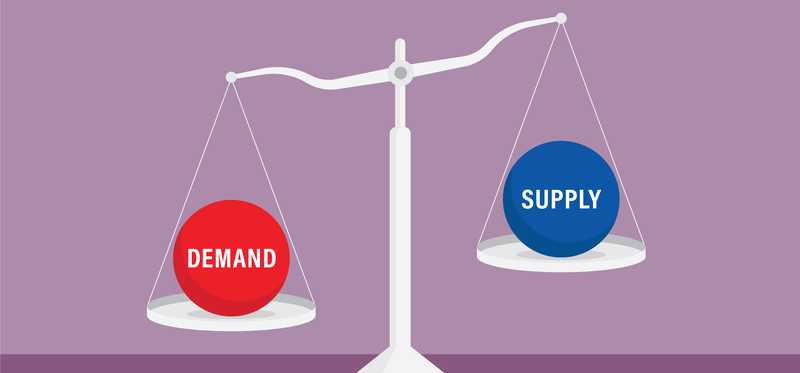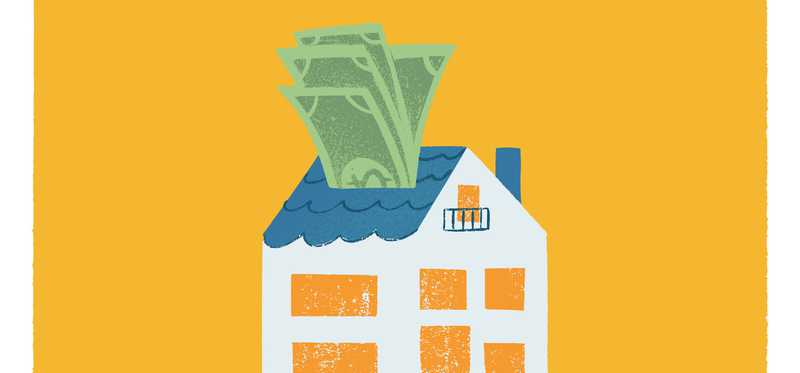Don't Invest in Real Estate Without Knowing These 10 Things

Don't Invest in Real Estate Without Knowing These 10 Things
Building a foundation for real estate investing
Real estate investing can be a wonderful tool to build wealth, diversify your portfolio, and benefit from passive income streams and even tax advantages, but it does require a notable amount of knowledge to get started. No matter if your goal is passive or active real estate investing, here are 10 things all investors should know before diving into the world of real estate.
5 Stocks Under $49
Presented by Motley Fool Stock Advisor
We hear it over and over from investors, “I wish I had bought Amazon or Netflix when they were first recommended by The Motley Fool. I’d be sitting on a gold mine!" It's true, but we think these 5 other stocks are screaming buys. And you can buy them now for less than $49 a share! Click here to learn how you can grab a copy of “5 Growth Stocks Under $49” for FREE for a limited time only.
Previous
Next

1. There are numerous ways to invest
When most people hear the term "real estate investing," they instantly think of owning and managing real estate themselves -- for example, with a single-family rental property. But there are dozens of different ways to invest in commercial or residential real estate.
One of the easiest and most passive ways is by purchasing shares in a real estate investment trust (REIT) or real estate exchange-traded fund (ETF). There are also opportunities for investment through a crowdfunding platform, or investors can take a more active role by fixing and flipping properties or owning rental real estate. Before investing, research each investment avenue to determine which strategy best aligns with your interests, time, and available funds.
Previous
Next

2. Supply and demand drives everything
Supply and demand is the largest driver of real estate values and rental rates, which are two key factors that generate an investor's return. Each individual asset class within commercial or residential real estate will have its own unique supply and demand makeup, which will impact how much you earn as an investor.
For example, self-storage may be oversupplied in the market and not a great investment at the given time. But industrial real estate, which is backed by solid long-term drivers from the growth of e-commerce, may be undersupplied and a great opportunity right now. Research demand drivers and the local market's current and in-development supply chain before investing in a property or asset class.
Previous
Next

3. Real estate is local
The saying "location, location location" exists for a reason. In real estate, location is one of the most important factors in determining the success of an investment. Real estate supply and demand is driven on a localized level, and no two markets are the same. Looking toward a general market can be a great starting point, but it's important to investigate the unique supply and demand for the area and determine which neighborhood or ZIP code holds the best opportunity as it relates to price and return.
ALSO READ: Housing Supply and Demand: What To Expect in 2022
Previous
Next

4. Real estate is cyclical
There are natural periods of growth and expansion followed by periods of slower development and less demand. Timing these periods isn't necessary for investing profitably, but understanding the different challenges and opportunities they present can impact how an investment performs over a short period of time. Investing in real estate on a more long-term basis will allow investors to ride through the highs and lows of these periods, most likely coming out ahead.
Previous
Next

5. Key metrics
Whether you plan to invest more passively through REITs, ETFs, private lending, or crowdfunding opportunities, or more actively by owning and managing your own property, it's crucial you understand what you're investing in.
Learn key metrics for your avenue of investing, which could be a company's funds from operations (FFO); debt balances like debt to earnings before interest, taxes, depreciation, and amortization (EBITDA); or other metrics like return on investment (ROI), internal rate of revenue (IRR), cap rate, and net operating income (NOI). This will help you analyze each investment, determining its risks and realistic profitability projections.
5 Stocks Under $49
Presented by Motley Fool Stock Advisor
We hear it over and over from investors, “I wish I had bought Amazon or Netflix when they were first recommended by The Motley Fool. I’d be sitting on a gold mine!" It's true, but we think these 5 other stocks are screaming buys. And you can buy them now for less than $49 a share! Click here to learn how you can grab a copy of “5 Growth Stocks Under $49” for FREE for a limited time only.
Previous
Next

6. Holding costs
If you plan to take the more active route for investing in real estate, it's important you factor in realistic costs related to holding your investment property, such as property taxes, property insurance, homeowners association (HOA) fees, vacancy costs, repair expenses, and management fees.
For residential real estate, such as a single-family rental property, holding costs are generally around 30% of the rental income, and most investors use a 10% vacancy rate, which accounts for around a month of the property sitting vacant between tenants. But this can be higher or lower depending on where your property is located, how costly the HOA fees are, and if you self-manage or hire a third-party management company.
Previous
Next

7. Having a team is helpful
You can 100% invest in real estate on your own, but there are major benefits to utilizing the expertise and advice of others. Utilize the knowledge of attorneys, tax professionals, real estate agents, property managers, or other professionals in their respective fields to help manage or advise your investment decisions. Having a strong team can definitely help improve your results when the members are chosen wisely and managed properly.
Previous
Next

8. There's a price to play
While there are ways to invest in real estate with little to no money, generally speaking, you will need money to invest. REITs and real estate ETFs are the most cost-effective ways to invest, with shares in certain companies starting around $10 up to several hundred dollars.
If you plan to invest actively, you'll need at minimum 20% of the property's purchase price to get a mortgage, plus you'll want to ensure the property can produce enough cash flow or income to cover the cost of the mortgage and holding costs.
Previous
Next

9. Stay focused
It pays to focus. Gaining experience in a singular niche as an active investor can allow you to establish systems, become an expert, and benefit from economies of scale as you grow your portfolio. Whether you chose to focus on apartments, self-storage, or single-family rental homes, get good at what you're doing before you branch into other avenues.
Previous
Next

10. Cheap doesn't necessarily equal value
There's a common saying in real estate: "You make money when you buy," which emphasizes the importance of purchasing an investment at the right price. But it's important to remember that cheap doesn't necessarily equal value -- discount does. The greater the discount as it relates to the property's value today, the higher the potential return.
There are ways to add value to a property by making improvements to its income, condition, or a combination of the two, but appreciation, which is the increase in a property's value over time, isn't guaranteed. That's why it's imperative you understand how to evaluate a property's value today and focus on purchasing the property at a discount to its price today.
5 Stocks Under $49
Presented by Motley Fool Stock Advisor
We hear it over and over from investors, “I wish I had bought Amazon or Netflix when they were first recommended by The Motley Fool. I’d be sitting on a gold mine!" It's true, but we think these 5 other stocks are screaming buys. And you can buy them now for less than $49 a share! Click here to learn how you can grab a copy of “5 Growth Stocks Under $49” for FREE for a limited time only.
Previous
Next

Your education is ongoing
Education is hugely important as you invest in real estate. Continue to educate yourself on the aspects of investing to help drive your decisions and improve your portfolio's performance. Real estate can be a powerful investment tool to build wealth, but doing so takes dedication and time to achieve.
The Motley Fool has a disclosure policy.
Previous
Next
Invest Smarter with The Motley Fool
Join Over Half a Million Premium Members Receiving…
- New Stock Picks Each Month
- Detailed Analysis of Companies
- Model Portfolios
- Live Streaming During Market Hours
- And Much More
READ MORE
HOW THE MOTLEY FOOL CAN HELP YOU
-
Premium Investing Guidance
Market beating stocks from our award-winning service
-
The Daily Upside Newsletter
Investment news and high-quality insights delivered straight to your inbox
-
Get Started Investing
You can do it. Successful investing in just a few steps
-
Win at Retirement
Secrets and strategies for the post-work life you want.
-
Find a Broker
Find the right brokerage account for you.
-
Listen to our Podcasts
Hear our experts take on stocks, the market, and how to invest.
Premium Investing Services
Invest better with The Motley Fool. Get stock recommendations, portfolio guidance, and more from The Motley Fool's premium services.